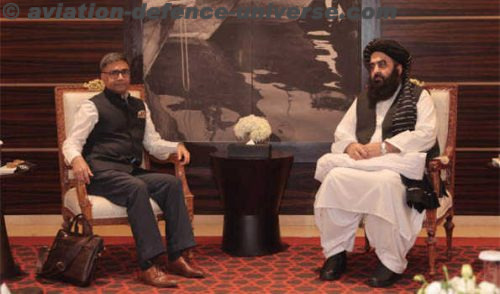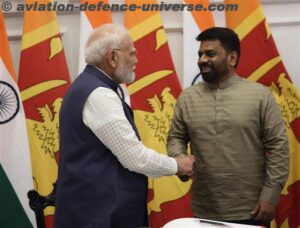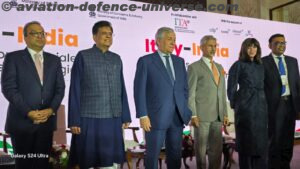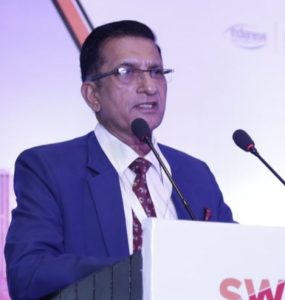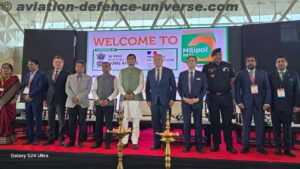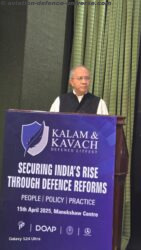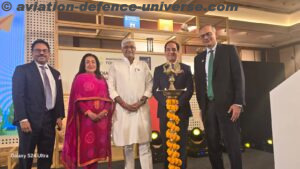- India Engages with Taliban for Regional Stability
- A Shift Driven by Realpolitik
- Pak-Afghan deteriorating relations result into India-Afghan ties
By Jai Kumar Verma

New Delhi. 17 January 2025. The escalating tensions between Pakistan and Afghanistan have opened new avenues for stronger India-Afghanistan ties. Pakistan’s strained relationship with the Taliban government, marked by cross-border clashes, trade disruptions, and accusations of harbouring militants, has created a diplomatic vacuum in the region. India, leveraging its historic goodwill with the Afghan people and its reputation as a partner in development, has cautiously stepped in to engage with Afghanistan. Through humanitarian aid, infrastructure projects, and diplomatic dialogue, India is fostering closer ties with Kabul, positioning itself as a stabilizing force in the region. This shift not only enhances India’s strategic interests but also signals its readiness to play a proactive role in Afghanistan’s rebuilding, countering Pakistan’s diminishing influence.
India and Taliban do not have a history of pleasant relations. Taliban rule from 1996-2001 had close relations with Pakistan wherein Taliban worked under instructions of Inter Services Intelligence (ISI). It was very evident during the hijacking of IC 814 in December 1999, in which India was forced to release Pakistani terrorists. However, in second innings Taliban understood their mistake and the relations between Taliban and Pakistan are not cordial now. India consistently sent humanitarian assistance to Afghanistan hence Kabul is interested in having friendly relations with India. Although at present there is no move to officially recognise the Taliban government but India in view of its security concerns is also interested to have amiable relations with Afghanistan.
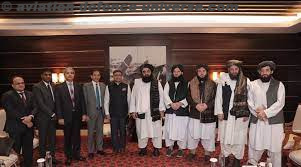 On 8 January 2025 India’s Foreign Secretary Vikram Misri met Afghan Acting Foreign Minister Mawlawi Amir Khan Muttaqi in Dubai. As UAE has close relations with India and Taliban, it enabled the meting happily. Before the current high-level meeting, J.P. Singh Joint Secretary in Ministry of External Affairs (MEA) and heading the Pakistan, Afghanistan and Iran Division met Taliban leaders including Muttaqi and Defence Minister Mohammad Yaqoob. Singh had about four meetings with Taliban leaders, after Taliban took over Kabul in August 2021.
On 8 January 2025 India’s Foreign Secretary Vikram Misri met Afghan Acting Foreign Minister Mawlawi Amir Khan Muttaqi in Dubai. As UAE has close relations with India and Taliban, it enabled the meting happily. Before the current high-level meeting, J.P. Singh Joint Secretary in Ministry of External Affairs (MEA) and heading the Pakistan, Afghanistan and Iran Division met Taliban leaders including Muttaqi and Defence Minister Mohammad Yaqoob. Singh had about four meetings with Taliban leaders, after Taliban took over Kabul in August 2021.
Misri and Muttaqi discussed several important issues including India’s security concerns, Delhi’s humanitarian assistance and usage of Chabahar port of Iran by Afghanistan. US exempted India from sanctions on the use of Chabahar port because of providing access to Afghanistan which is a land-locked country. However, the scenario may change once president elect Trump takes over hence both countries want to show the utility of Chabahar port at the earliest.
India’s decision to negotiate with Taliban is a strategic move as it wants to protect its security interests. The meeting between Misri and Muttaqi happened when the relations between Islamabad and Kabul have deteriorated. MEA spokesman also mentioned “We unequivocally condemn any attack on innocent civilians. It is an old practice of Pakistan to blame its neighbours for its own internal failures”. In this way India showed solidarity with Afghanistan.
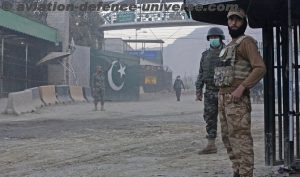 The relations between Kabul and Islamabad soured as Pakistan alleged that Taliban are not only harbouring Tehrik-e-Taliban Pakistan (TTP) terrorists but also extending them assistance. TTP activists are attacking Pakistani civilians as well as military personnel. TTP is an alliance of terrorist organisations which are united against Pakistan military and wants the implementation of a strict interpretation of Sharia throughout Pakistan. Islamabad carried out airstrikes inside Afghanistan in which about 50 persons were killed. Afghanistan made retaliatory attacks at several places in Pakistan in which one Pakistani soldier and few civilians were also killed.
The relations between Kabul and Islamabad soured as Pakistan alleged that Taliban are not only harbouring Tehrik-e-Taliban Pakistan (TTP) terrorists but also extending them assistance. TTP activists are attacking Pakistani civilians as well as military personnel. TTP is an alliance of terrorist organisations which are united against Pakistan military and wants the implementation of a strict interpretation of Sharia throughout Pakistan. Islamabad carried out airstrikes inside Afghanistan in which about 50 persons were killed. Afghanistan made retaliatory attacks at several places in Pakistan in which one Pakistani soldier and few civilians were also killed.
The latest air strikes occurred when Mohammad Sadiq, Pakistan’s special representative to Afghanistan was negotiating with Afghan leaders. The negotiations between Pakistan and Afghanistan have been continuing for last two years and Pakistani defence minister as well as ISI chief visited Afghanistan while Afghan Minister for Foreign Affairs visited Pakistan for negotiations. But TTP attacks continued and Pakistan’s Interior Ministry claims that in last 10 months TTP made 1,500 attacks in which 924 Pakistanis including 570 law enforcement officials were killed.
It is a diplomatic failure and missiles and air-strikes cannot solve the problem. Islamabad should understand that Afghanistan is a sovereign country hence it should stop following the “doctrine of strategic depth”. Islamabad should stop using Afghanistan’s soil for harbouring terrorists against India. ISI cannot treat Afghanistan as a pawn against its traditional enemy India, as this strategy has made common Afghans anti Pakistan.
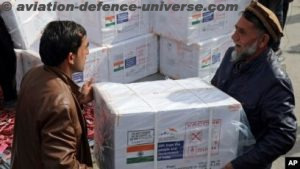 India in response to the needs of the Afghan people, “has so far dispatched several shipments consisting of 50,000 MTs of wheat, 40,000 litres of pesticides, 300 tons of medicines, 1.5 million doses of COVID Vaccine, 100 million polio doses, 27 tons of earthquake relief aid, 11,000 units of hygiene kits for the drug de-addiction programme, 500 units of winter clothing and 1.2 tons of stationery kits, etc.”
India in response to the needs of the Afghan people, “has so far dispatched several shipments consisting of 50,000 MTs of wheat, 40,000 litres of pesticides, 300 tons of medicines, 1.5 million doses of COVID Vaccine, 100 million polio doses, 27 tons of earthquake relief aid, 11,000 units of hygiene kits for the drug de-addiction programme, 500 units of winter clothing and 1.2 tons of stationery kits, etc.”
India also raised its security concerns which includes that no anti-India terror group should be permitted to operate from Afghanistan. Afghan side realised India’s concern and promised to “remain in touch and continue regular contacts at various levels.”
India also agreed to give more material support to the health sector and in the rehabilitation of refugees. The rehabilitation of refugees has become a crucial issue, as Pakistan and Iran are sending back large number of refugees to Afghanistan in the winter season. Misri also praised Taliban as it is fighting against drugs and corruption in the country. No discussions were held about women’s rights or about the condition of minorities.
In the second innings Taliban wants cordial relations with India and Delhi which understands the strategic importance of Afghanistan, made the first move on 31 August, 2021 through Indian ambassador in Qatar who met Sher Mohammad Abbas Stanikzai who was Taliban’s Doha office representatives. Stanikzai was an Indian Military Academy pass out and became Deputy Foreign Minister in Taliban regime. These meetings by J.P. Singh opened way for deputing a technical team at the Indian Embassy in Kabul.
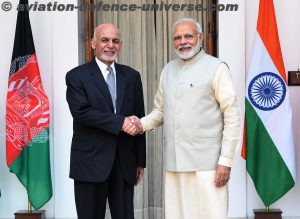
Kabul has ensured safeguarding India’s security interests and mentioned that they are also trying to eliminate Islamic State of Khorasan Province (ISKP) in Afghanistan. India is also concerned about rising Chinese influence in Afghanistan as Beijing is building bridges and roads with covert intention of exploiting vast mineral resources of Afghanistan. China sent its ambassador to Kabul in September 2023 and also received Taliban ambassador in early 2024. Beijing also called for lifting of freeze on Afghan Central Bank overseas assets. China is developing park and building homes in Kabul and an Afghan minister also mentioned that they approached countries to help in building Afghanistan but only China came for their help.
When Taliban captured power, India thought that Islamabad would utilise Kabul against India by helping and assisting terrorist outfits. But the relations between Kabul and Islamabad soured up to the extent that Pakistan resorted to airstrike and Taliban attacked Pakistani posts.
The strength of Iran has considerably dwindled because of Israel’s attacks hence Tehran is more involved in its internal affairs and is no position to influence Afghanistan’s internal affairs. Not only this Russia which is involved in war with Ukraine is also trying to have cordial relations with Taliban. After overthrow of Syrian President Bashar al-Assad, Moscow wants to have close relations with Kabul as it is essential to fight multiple Islamic terrorist outfits. In December 2024 Russian parliament passed a law so that Taliban can be removed from banned list of terrorist organisations.
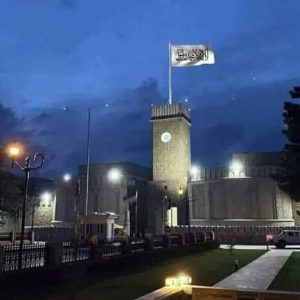 So far, no country has recognized the Taliban as the legitimate government of Afghanistan. However, some countries including China, Russia, Pakistan, Iran and Qatar have given de facto recognition, as they have retained their embassies. India has also recently reopened its diplomatic mission but it is manned by lower-level diplomats.
So far, no country has recognized the Taliban as the legitimate government of Afghanistan. However, some countries including China, Russia, Pakistan, Iran and Qatar have given de facto recognition, as they have retained their embassies. India has also recently reopened its diplomatic mission but it is manned by lower-level diplomats.
The present Taliban government does not want to remain under the shadow of Pakistan. It has vast mineral resources and it wants to exploit them and knows that Pakistan neither has capability nor resources to extract these minerals. Hence it would lean towards China or India. Afghanistan also needs India or China for its infrastructure development. Taliban in 2.0 would not like to be treated as a terrorist organisation. It assured India that it would take actions against terrorist outfits like Lashkar-e-Taiba, Jaish-e-Mohammed, al-Qaeda etc. Taliban also allowed former Afghan CEO Dr. Abdullah Abdullah to visit India to meet his family as they want to improve relations with India.
Indian foreign policy planners have rightly assessed that Taliban would remain an important factor in the politics of Afghanistan. Gradually some more countries would recognise Taliban regime, would negotiate with them and conduct business. In first innings Taliban were fully dependent on Pakistan but in the second innings Taliban does not want to restrict itself with Islamabad and recent clashes prove it. Now Taliban want global partners and international recognition hence it wants close relations with India and if Taliban and India have close relations, the chances of nexus between Taliban and Pakistan lessens.
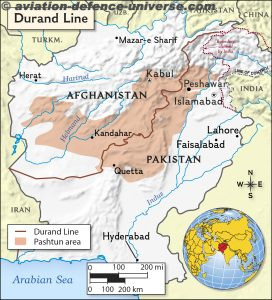 Taliban 2.0 would work more independently and may challenge the legitimacy of Durand Line. Pakistan which is suffering from secessionist movements and agitations in Balochistan, Sindh, Gilgit & Baltistan, Pakistan Occupied Kashmir may face a bigger movement from Pashtuns. Islamabad may be happy to inculcate close relations with Bangladesh but cannot afford souring of relationship with Afghanistan.
Taliban 2.0 would work more independently and may challenge the legitimacy of Durand Line. Pakistan which is suffering from secessionist movements and agitations in Balochistan, Sindh, Gilgit & Baltistan, Pakistan Occupied Kashmir may face a bigger movement from Pashtuns. Islamabad may be happy to inculcate close relations with Bangladesh but cannot afford souring of relationship with Afghanistan.
The evolving geopolitical landscape in South Asia has compelled both India and the Taliban to adopt a pragmatic approach to engagement. For India, maintaining influence in Afghanistan is essential to counter regional security threats, ensure the safety of its investments, and prevent the country from becoming a hub for anti-India activities. For the Taliban, seeking international legitimacy and economic support has necessitated dialogue with major regional players like India. Despite historical mistrust and ideological differences, this newfound pragmatism reflects the realities of interdependence in a volatile region. By prioritizing mutual interests such as humanitarian aid, counterterrorism, and regional stability, India and the Taliban are navigating a delicate yet critical diplomatic balance.
(Jai Kumar Verma is a Delhi-based strategic analyst and member of United Services Institute of India and The Manohar Parrikar Institute for Defence Studies and Analyses,. The views in the article are solely the author’s. He can be contacted at editor.adu@gmail.com)






































